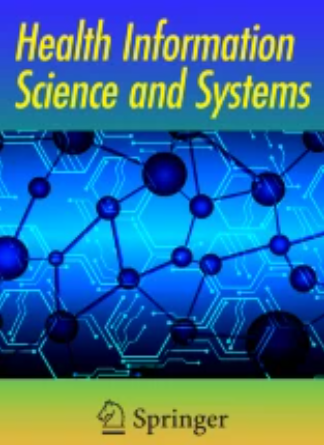ADHD-KG: a knowledge graph of attention deficit hyperactivity disorder
IF 3.4
3区 医学
Q1 MEDICAL INFORMATICS
引用次数: 0
Abstract
Abstract Purpose Attention Deficit Hyperactivity Disorder (ADHD) is a widespread condition that affects human behaviour and can interfere with daily activities and relationships. Medication or medical information about ADHD can be found in several data sources on the Web. Such distribution of knowledge raises notable obstacles since researchers and clinicians must manually combine various sources to deeply explore aspects of ADHD. Knowledge graphs have been widely used in medical applications due to their data integration capabilities, offering rich data stores of information built from heterogeneous sources; however, general purpose knowledge graphs cannot represent knowledge in sufficient detail, thus there is an increasing interest in domain-specific knowledge graphs. Methods In this work we propose a Knowledge Graph of ADHD. In particular, we introduce an automated procedure enabling the construction of a knowledge graph that covers knowledge from a wide range of data sources primarily focusing on adult ADHD. These include relevant literature and clinical trials, prescribed medication and their known side-effects. Data integration between these data sources is accomplished by employing a suite of information linking procedures, which aim to connect resources by relating them to common concepts found in medical thesauri. Results The usability and appropriateness of the developed knowledge graph is evaluated through a series of use cases that illustrate its ability to enhance and accelerate information retrieval. Conclusion The Knowledge Graph of ADHD can provide valuable assistance to researchers and clinicians in the research, training, diagnostic and treatment processes for ADHD.ADHD-KG:注意缺陷多动障碍的知识图谱
摘要:目的注意缺陷多动障碍(ADHD)是一种影响人类行为的普遍疾病,可以干扰日常活动和人际关系。有关ADHD的药物或医疗信息可以在网络上的几个数据源中找到。由于研究人员和临床医生必须手动结合各种来源来深入探索ADHD的各个方面,因此这种知识分布带来了明显的障碍。由于其数据集成能力,知识图在医疗应用中得到了广泛的应用,提供了从异构源构建的信息的丰富数据存储;然而,通用知识图不能足够详细地表示知识,因此对特定领域知识图的兴趣越来越大。方法本研究提出了ADHD知识图谱。特别是,我们介绍了一个自动化的程序,可以构建一个知识图谱,该图谱涵盖了来自广泛数据源的知识,主要集中在成人ADHD上。这些包括相关文献和临床试验、处方药物及其已知的副作用。这些数据源之间的数据集成是通过采用一套信息链接过程来完成的,这些过程旨在通过将资源与医学词典中的公共概念联系起来来连接资源。结果通过一系列用例评价了知识图谱的可用性和适宜性,说明了知识图谱增强和加速信息检索的能力。结论ADHD知识图谱可以为研究人员和临床医生在ADHD的研究、培训、诊断和治疗过程中提供有价值的帮助。
本文章由计算机程序翻译,如有差异,请以英文原文为准。
求助全文
约1分钟内获得全文
求助全文
来源期刊

Health Information Science and Systems
MEDICAL INFORMATICS-
CiteScore
11.30
自引率
5.00%
发文量
30
期刊介绍:
Health Information Science and Systems is a multidisciplinary journal that integrates artificial intelligence/computer science/information technology with health science and services, embracing information science research coupled with topics related to the modeling, design, development, integration and management of health information systems, smart health, artificial intelligence in medicine, and computer aided diagnosis, medical expert systems. The scope includes: i.) smart health, artificial Intelligence in medicine, computer aided diagnosis, medical image processing, medical expert systems ii.) medical big data, medical/health/biomedicine information resources such as patient medical records, devices and equipments, software and tools to capture, store, retrieve, process, analyze, optimize the use of information in the health domain, iii.) data management, data mining, and knowledge discovery, all of which play a key role in decision making, management of public health, examination of standards, privacy and security issues, iv.) development of new architectures and applications for health information systems.
 求助内容:
求助内容: 应助结果提醒方式:
应助结果提醒方式:


